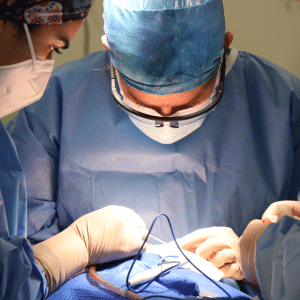Exploring Cutting-Edge Advancements in Bipolar Disorder Treatment
Maddison Henley PA-C

Bipolar disorder, a mental health condition marked by extreme mood swings and changes in energy, is a challenging reality for many. Some people grappling with this disorder may oscillate between jubilant highs and desolate lows, while others may just have periods of extreme highs. While current treatments like medication and counseling have provided relief for many, research continues to aim for more advanced and targeted interventions. Let’s look into some of the fascinating new approaches being studied for the treatment of bipolar disorder.
Tech-Based Solutions and Virtual Cognitive Behavioral Therapy

It’s fascinating to see how technology is revolutionizing the mental health care world. ‘Digital therapeutics‘ aims to leverage applications accessible via our smartphones or computers to help manage conditions – bipolar disorder included. Data from various studies suggest that these digital platforms can minimize depressive symptoms and enhance the lives of those living with bipolar disorder.
One such technological innovation is the implementation of online cognitive behavioral therapy (CBT). Through a series of targeted activities, CBT can help individuals change harmful thought patterns. Research shows that combining CBT with medication can indeed make a difference in managing the symptoms of bipolar disorder. What’s more, online platforms mean that these useful resources can be accessed anytime, anywhere, providing access to more individuals in need
The Potential of Glutamate Blocking Drugs
Glutamate is a chemical messenger that can harm neurons if overproduced, leading to mood disorders such as bipolar disorder. However, recent research has been exploring the benefits of using drugs to block glutamate as a potential treatment. Some initial research has shown promising results, hinting at a potential reduction in manic and depressive symptoms. Still, larger scale studies are needed to validate these findings.

Gut Health and Dietary Adjustments
There is a growing interest in the connection between gut health and mental well-being, termed the gut-brain axis. Studies have found that individuals with bipolar disorder seem to have vastly different gut bacteria from those who do not have the condition. Scientists speculate that changing a person’s diet or introducing certain probiotics could prove valuable in managing bipolar symptoms, although this is still a developing area of research.
Deep Brain Stimulation (DBS) Surgery

Known primarily as a treatment for movement disorders like Parkinson’s Disease, Deep Brain Stimulation (DBS) is a surgical procedure that is also being explored for its potential in treating bipolar disorder. DBS involves attaching a device to the brain that sends electrical signals to areas that regulate mood. Preliminary findings suggest that it could be a powerful tool, even for patients who haven’t responded to conventional treatments.
Using Neurofeedback to Self-Regulate
Neurofeedback utilizes real-time displays of brain activity to help educate the brain towards better functionality. This technique, which empowers individuals to self-regulate their brain function, is starting to show hope in managing bipolar disorders in new studies.
While these exciting new avenues for bipolar disorder treatment are showing promise, we must remember that many of them are still in the research phase. It’s critical not to alter your treatment plan without professional guidance. Considering exploring one of these innovative treatments? It’s recommended to schedule an appointment with your psychiatrist or mental healthcare provider to discuss the possibilities.
Responsibly edited by AI
Other Blog Posts in
Animo Sano Psychiatry is open for patients in North Carolina, Georgia and Tennessee. If you’d like to schedule an appointment, please contact us.
Get Access to Behavioral Health Care
Let’s take your first step towards. Press the button to get started. We’ll be back to you as soon as possible.ecovery, together.




